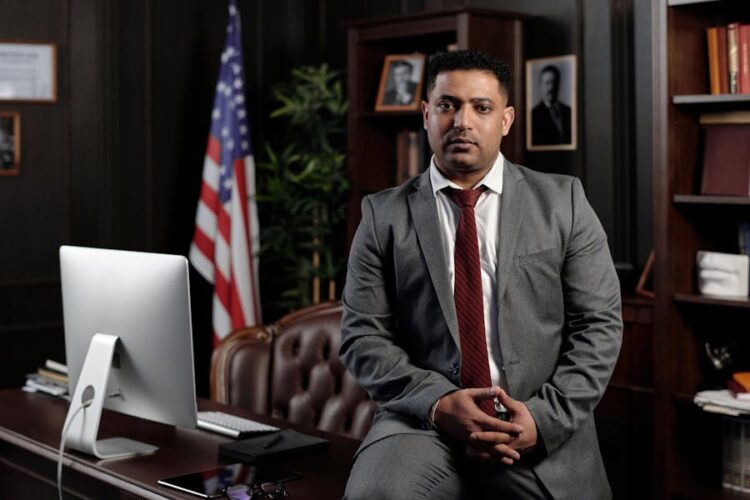You might know about the term “attorney-client” privilege, even if you’re not a lawyer. You may have some idea what it means. However, most individuals who don’t have a legal background don’t know all that much about how it works.
Ensuring your conversations are protected by attorney-client privilege becomes paramount if you’re discussing something you don’t want most people to know. If you’re not sure exactly how it works, you can always ask your lawyer. Determining whether something falls into this category makes sense before you bring it up. We’ll discuss this concept further in this article.
What Does Attorney-Client Privilege Mean?
First, let’s make sure that you understand this term. Attorney-client privilege means you can communicate with your attorney in many instances, and what you say won’t go any further. In other words, you might mention something, and your attorney won’t discuss it with anyone else for any reason.
That matters if you’re discussing a highly sensitive topic. Attorney-client privilege does not necessarily mean you’re saying something incriminating. It could simply mean you must discuss something in private without worrying about your attorney talking about it with someone else. You and your doctor have a similar relationship, and you’ll see similar rules in place.
Now, let’s learn a little more about this legal concept and practice.
This Rule Dates Back To The 16th Century
Somewhat unbelievably, attorney-client privilege can trace its roots all the way back to the 16th century. The rule played on the concept that the attorney had an honor-bound duty to not reveal certain things their client said.
If you fast forward to the 19th century, you would see that the legal system had changed in many ways, but the rule still held sway. At that point, the court determined that the client held the privilege and not so much their lawyer.
Not Everything Has Privileged Status
However, you should also understand when you hire a lawyer that when you claim attorney-client privilege, that only applies when you’re discussing your case. Sometimes, prosecutors have pondered exactly what that means in courtroom situations. Judges have ruled on it in several high-profile cases.
To make things as simple as possible, you could say that, as a defendant, anything you say about the case to your lawyer, whether spoken or written, remains under attorney-client privilege. That means your lawyer can’t legally talk about it with anyone else. Just like virtually any area of the law, though, you will start to notice some gray areas when this concept comes up in a courtroom setting. That’s why it’s never a bad idea to ask explicitly about whether something you’re going to bring up falls into this category before you broach the subject.
If Someone Violates This Rule, The Court Can Strike It From The Record
Let’s imagine a scenario for a moment. You tell your lawyer, when you’re facing criminal charges, that you did something legally or ethically questionable. Maybe you feel they should know about it for some reason.
In this situation, no one can force your lawyer to reveal that information, again assuming that what you brought up remains case-related. Even if someone compels your lawyer through dubious means to reveal what you said, the court will say the information can’t go on the record for the trial’s duration. Even if the jury heard it, they must disregard it.
That’s a clause in the legal system that seldom comes into play, though. That’s because no officer of the court can compel your lawyer to say anything that you revealed in confidence that falls under attorney-client privilege. Any competent or experienced court officer representing the prosecution should know that.
Certain Additional Rules Apply
We’ve already mentioned that if you know you’re talking directly about a legal matter or case you’re in, you can speak freely because you know your lawyer can’t repeat that information. However, you should know about a couple of other clauses that this rule contains.
You can also feel confident that your attorney can’t repeat what you say if you were seeking their legal advice. If you thought the communication retained confidential status, you can feel confident the information will not leave the room as well. Finally, the rule applies if you made reasonable efforts to ensure you were communicating confidentially.
Look at it this way. If you’re behind closed doors in your lawyer’s office and you say you did something, if it’s case-related, you should feel sure they can’t repeat it. However, if you’re out in the hallway outside the courtroom and talking loudly with many people around, you can’t expect that same protection.
If you’re careless or reckless about what you say, you get into one of those gray areas. That’s why you should always behave cautiously when discussing privileged or potentially incriminating information.
Some Exceptions Also Exist
You should also know some common exceptions where attorney-client privilege does not apply. For instance, you can waive this privilege any time you want. When you do this, it’s strictly on your own impetus. No one can compel you, but you can state you’re waiving the privilege, and your lawyer must obey what you’re saying.
There’s also the “future crimes” clause. This means, if you’re talking in your lawyer’s office, and you say you plan to kill someone, that’s a future crime, and it’s not protected speech. In fact, in many instances a lawyer must tell the court if you told them explicitly you have dangerous or threatening plans of some kind.
Your lawyer will protect your interests, but they also must protect themselves. They should reveal your plans if you’re expressing criminal thoughts, and it seems clear you’ll carry them out.
Now that you know about attorney-client privilege, you’ll understand most situations when you can claim it. Your attorney should know all the rule’s tiniest details as well. They sometimes come into play when high-stakes trials enter the public eye, so take advantage, but don’t abuse the privilege.










